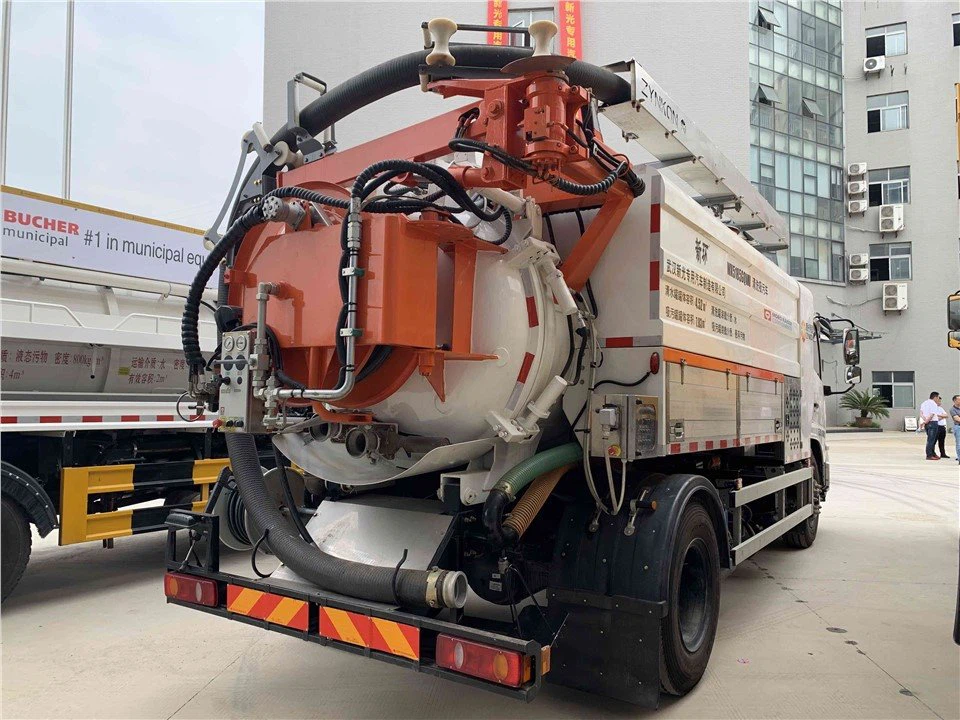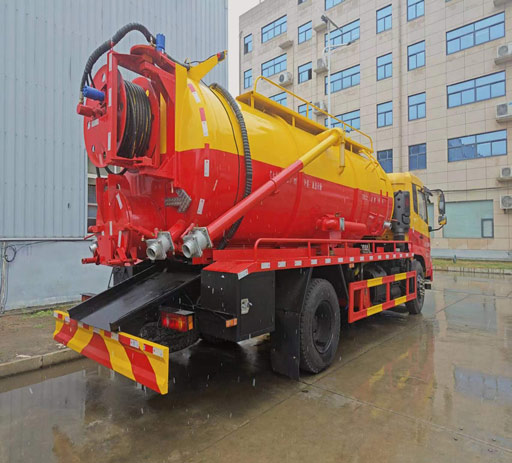Cement Mixer Truck Capacity: Understanding Your Needs

Introduction
Cement mixer trucks are an essential part of the construction industry, responsible for transporting and mixing concrete to construction sites. Understanding the capacity of these trucks is crucial for contractors and builders, as it directly impacts project timelines and cost management. This article delves into the various aspects of cement mixer truck capacity, including types of trucks, factors affecting capacity, and practical considerations for efficient operations.
1. What is a Cement Mixer Truck?
A cement mixer truck, also known as a concrete transport truck, is a specialized vehicle equipped with a rotating drum for mixing and transporting concrete. The design of the truck ensures that the concrete remains in a fluid state until it reaches its destination. These trucks come in various sizes and capacities, catering to different construction needs.
1.1. Types of Cement Mixer Trucks
There are several types of cement mixer trucks, each designed to meet specific construction requirements:
- Standard Mixer Truck: The most common type, typically with a capacity ranging from 8 to 12 cubic yards.
- Mini Mixer Truck: Ideal for small projects, these trucks typically hold 3 to 5 cubic yards of concrete.
- Volumetric Mixer Truck: Equipped with separate compartments for dry materials and water, allowing for on-site mixing and offering flexibility.
- Truck Mounted Mixer: These mixers are mounted on a truck chassis and are suitable for small to medium-sized jobs.
2. Understanding Capacity Measurements
When discussing cement mixer truck capacity, it is essential to understand the different units of measurement and what they signify.
2.1. Cubic Yards vs. Cubic Meters
The capacity of a cement mixer truck is usually expressed in cubic yards or cubic meters. One cubic yard is equivalent to 0.7646 cubic meters. Contractors should choose the measurement that best fits their project requirements.
2.2. Payload Capacity
Payload capacity refers to the maximum amount of concrete a truck can carry. This capacity influences how many trips a truck will need to make to complete a project, impacting both time and cost.
3. Factors Affecting Cement Mixer Truck Capacity
Several factors can influence the effective capacity a cement mixer truck can carry:
3.1. Truck Size and Design
The overall size and design of the truck play a crucial role in determining its capacity. Larger trucks can generally carry more concrete, while smaller trucks are limited in payload.
3.2. Local Regulations
In some regions, local road regulations may limit the maximum weight a truck can carry. It’s important to be aware of these regulations to avoid fines and delays.
3.3. Type of Concrete
The type of concrete used can also affect capacity. Heavier aggregates will reduce the overall volume of concrete the truck can transport.
3.4. Mixing Time
The time taken to mix the concrete influences how much concrete can be delivered on time. It’s vital to balance mixing time and transport time for efficient workflow.
4. Calculating Your Concrete Needs
Before selecting a cement mixer truck, it’s important to accurately calculate the amount of concrete required for your project.
4.1. Determine Project Volume
Measure the dimensions of the area you wish to fill with concrete. Use the formula:
| Dimension | Formula | Example |
|---|---|---|
| Slab | Length × Width × Thickness | 10ft × 10ft × 0.5ft = 50ft³ |
| Cylindrical Forms | π × Radius² × Height | π × (2ft)² × 4ft = 50.27ft³ |
4.2. Convert to Cubic Yards
Dive the total volume in cubic feet by 27 to convert to cubic yards. Calculate if the capacity of your chosen truck aligns with your project needs.

5. Tips for Efficient Concrete Delivery
Using cement mixer trucks efficiently can save time and money on construction projects. Consider the following tips:
5.1. Plan Deliveries Strategically
Schedule concrete deliveries during off-peak hours to avoid traffic delays. Communicate with your supplier to ensure timely arrivals.
5.2. Optimize Load Size
Ensure your mixer truck is loaded to its optimal capacity for each trip. Avoid underloading, which waste trips, and avoid overloading, which can lead to fines.
5.3. Monitor Weather Conditions
Check the weather forecast prior to scheduling concrete deliveries. Rain can affect the curing process, while extremely hot or cold temperatures can influence setting times and strength.
6. Maintenance of Cement Mixer Trucks
Routine maintenance of cement mixer trucks is vital for ensuring their longevity and efficiency.
6.1. Daily Inspections
Before use, conduct daily inspections of the mixer truck to check for any irregularities in function or hydraulic fluid levels.
6.2. Regular Cleaning
Clean the mixer and the drum after each use to prevent concrete buildup, which can affect performance.
6.3. Schedule Professional Servicing
Arrange for professional servicing at regular intervals to keep the truck in top condition.

7. Common Issues with Cement Mixer Trucks
Understanding potential problems can help prevent disruptions during concrete delivery.
7.1. Clogging of the Mixing Drum
Clogged drums can cause delays. Regular maintenance and proper cleaning can minimize this issue.
7.2. Drum Spinning Problems
If the drum is unable to spin correctly, the concrete may not mix properly, leading to compromised quality.
7.3. Weight Limitations
Exceeding weight limits can result in fines and may cause accidents. Always verify weight capacities against local regulations.
8. Frequently Asked Questions (FAQ)
8.1. What is the average capacity of a cement mixer truck?
The average capacity of a standard cement mixer truck ranges from 8 to 12 cubic yards.
8.2. How can I determine how much concrete I need?
Measure the area of the project and use formulas to calculate the total volume, then convert to cubic yards.
8.3. What affects the capacity of a cement mixer truck?
Factors include truck size, local regulations, type of concrete, and mixing time.
8.4. Are all cement mixer trucks the same size?
No, cement mixer trucks come in various sizes, including mini mixers for small jobs and larger trucks for major projects.
8.5. How do I calculate if a cement mixer truck can handle my project?
Calculate the total concrete volume needed for your project and choose a truck with an adequate capacity to meet your needs.

8.6. What maintenance is necessary for cement mixer trucks?
Routine inspections, regular cleaning, and professional servicing are essential for maintaining cement mixer trucks.
